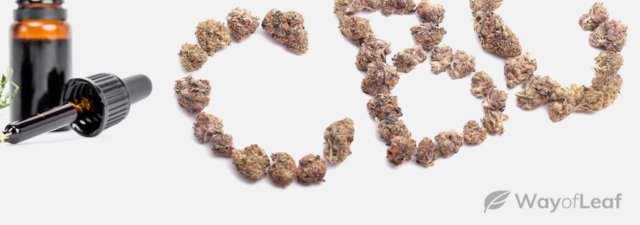Also known as tetrahydrocannabinol-O-acetate or THC-O acetate, THC-O is a significantly more potent analog of delta 9 THC. The strong level of intoxication it causes meant this cannabinoid became extremely popular. Yet, concerns over its effects led to federal involvement, and now THC-O is federally illegal.
It is so powerful that consuming it in similar amounts to D9 will likely lead to psychedelic effects. The lack of regulation in the fledgling THC-O market meant it was flooded with products of dubious quality. Consume the wrong thing, and you could suffer serious complications.
This article looks into all things THC-O, including its legality, how it’s made, its intoxication level and effects, and whether it is safe.
What Is THC-O?
Nicknamed the “psychedelic of cannabinoids,” THC-O acetate is a synthetic form of tetrahydrocannabinol. It does not exist naturally in the hemp or marijuana plant, which means expensive equipment and detailed knowledge of chemistry are required to create it. THC-O is approximately three times stronger than delta 9 THC, so users should tread carefully.
Even though it has only become popular recently, the American military began studying THC-O decades ago. It investigated the compound as a potential non-lethal incapacitating agent during the Edgewood Arsenal experiments, which took place between 1949 and 1975.
At the time, researchers tried to determine if THC-O was safe by testing it on dogs. They found that the cannabinoid had twice the capacity of delta 9 THC for producing ataxia in the canines.

The DEA encountered THC-O in 1978 after finding a lab that produced it illegally in Florida. However, as the drug didn’t enter the market, the government agency didn’t investigate it further. Indeed, there was little mention of THC-O until 2021. Then, suddenly, it started appearing online and became available to American customers.
THC-O has the same base structure as delta 9 but with an acetate group attached. The additional portion of the molecule means it is far more potent than most THC forms.
Is THC-O Legal?
Not anymore! The fact that manufacturers could synthesize it from hemp meant it was technically legal for a while. Remember, the 2018 Farm Bill legalized the cultivation of industrial hemp with a maximum of 0.3% THC. The plant is no longer considered a controlled substance.
Manufacturers of THC-O claimed that it was legal because it came from hemp and contained a delta 9-THC level below the legal limit. Yet, there was an argument that the 1986 Federal Analogue Act (FAA) made the cannabinoid a Schedule I drug. The FAA bans analogs of current Schedule I substances by default. The only way for a substance to get removed from the list is through a manual exception, which never happened with THC-O.
In the end, the DEA removed all doubt in February 2023 by stating that THC-O products fell within the Controlled Substances Act’s definition of “marijuana.” Thus, all THC-O products, including delta-8 THCO and delta-10 THCO, are now illegal under federal law. In simple terms, because THC-O doesn’t occur naturally in the hemp plant, it is a Schedule I controlled substance.
How Is THC-O Acetate Made?
Believe it or not, the process for manufacturing THC-O acetate is almost the same as making heroin from morphine! It involves taking a compound and adding an acetate group to increase its absorption rate and potency. While THC-O’s base structure is similar to cannabinoids found in nature, the functional acetate group is not.
Making THC-O involves several extractions, beginning with industrial hemp. Manufacturers extract cannabidiol (CBD) from hemp, then extract delta 8 from the cannabidiol. At this stage, they add acetic anhydride, an extremely flammable compound, to the mix to create THC-O acetate. When properly produced, it takes the form of a thick brown liquid that resembles motor oil.
Making tetrahydrocannabinol-O-acetate is an extremely dangerous process. You should only create it in a proper lab with a vacuum hood. Only someone with the right knowledge and technical equipment should consider making it. Manufacturing THC-O involves the use of volatile, flammable, and explosive chemicals.
One part of the process involves refluxing in strong acid. You need flasks to have a strong vacuum as they’re heated. It is a necessary step but one that could lead to an implosion. If such an incident occurs, the emission of glass, boiling acid, flammable liquids, and poisonous vapor could prove fatal.
Making THC-O also involves the off-gassing of peroxide gas into the air. It is explosive, so a single spark could result in an explosion. NEVER try to make THC-O at home! It’s not just illegal; it’s also extremely dangerous!
Is THC-O Stronger Than Delta THC 9?
Yes. It is approximately three times stronger than THC. It takes a surprisingly small amount to trigger hallucinatory effects. THC-O is a prodrug. This means it doesn’t become active until after the liver metabolizes it. Once the drug is metabolized, what’s left is basically D9.
One reason THC-O is so strong is its high rate of bioavailability. THC-O acetate is far more bioavailable than its delta 9 counterpart. Its functional group (-O) is removed after absorption. Consequently, THC has its usual effects but at a substantially higher dose. Yet, as strong as THC-O is, it is not quite as potent as THCP.
Is THC-O Safe?
At present, there are no available scientific studies on the safety of THC-O. It is probably safer than other synthetic cannabinoids, such as Spice, which is a non-classical cannabinoid. This means it activates the same receptors as THC and other cannabinoids but doesn’t have a similar chemical structure, unlike THC-O.
Apart from the lack of research, there is the small matter of the market’s unregulated nature. In October 2021, NORML published a report highlighting the dangers of unregulated delta 8, delta 9, and THC-O products. The report urged people not to purchase such items and warned of exposure to an artificially concentrated terpene level in some products that could have toxic effects when inhaled.

Unfortunately, many THC-O sellers didn’t provide third-party lab reports with their products. Even when there were reports, they showed 15+% unknowns, and the manufacturer either didn’t know what this meant or refused to say.
There is a belief that THC-O’s acetate group could cause a condition called lipoid pneumonia when vaped. Once used as an additive in vape pens, vitamin E acetate is also linked with this medical issue. It was also identified as the likely culprit in the vaping illness epidemic, which claimed at least 60 lives.
Possible side effects from THC-O in general, include:
- Dizziness
- Hallucinations
- Paranoia
- Anxiety
- Sedation & lethargy
- Seizures
- Nausea and vomiting
Will THC-O Show up on a Drug Test?
There is a suggestion that you can use THC-O without worrying about failing a drug test. However, it will likely show up. Remember, it is a prodrug for D9. As a result, it leaves the body in the same form. This means it will almost certainly get picked up by a drug screen looking for THC metabolites. As it is more potent than delta 9, there’s an even greater risk of failing!
Final Thoughts on THC-O
THC-O is a synthetic, highly intoxicating cannabinoid that’s triple the potency of delta 9 THC. There is a lack of evidence regarding its safety and efficacy, although it seems to have similar effects to D9. It was all the rage for a short period until the DEA stepped in and asserted that the cannabinoid was legal. Thus, you’re unlikely to find anyone selling it online, barring black-market brands.
Frankly, apart from the fact that you’re breaking the law by using THC-O, consuming it is potentially hazardous to your health, especially if you vape it. Thus, we recommend steering well clear.

![Bisabolol Cannabis Terpene [All You Need to Know]](https://wayofleaf.com/wp-content/uploads/2020/11/wol-banner-bisabolol-cannabis-terpene-640x225.jpg)
![Can CBD Oil Be Taken with Ibuprofen? [What the Science Says]](https://wayofleaf.com/wp-content/uploads/2020/08/wol_can-cbd-oil-be-taken-with-ibuprofen-1-640x225.jpg)


![Is Cannabis a Fruit or Vegetable? [Here’s the Answer]](https://wayofleaf.com/wp-content/uploads/2019/01/is-cannabis-a-vegetable-or-fruit-640x225.jpg)
![What Are the Tiny Red Hairs on Weed? [Explained]](https://wayofleaf.com/wp-content/uploads/2018/12/wol_what-are-the-tiny-red-hairs-on-weed_1920x450-640x225.jpg)
![Medical Cannabis Vs. Morphine [The Difference]](https://wayofleaf.com/wp-content/uploads/2018/11/mj_medical-cannabis-versus-morphine-640x225.jpg)




